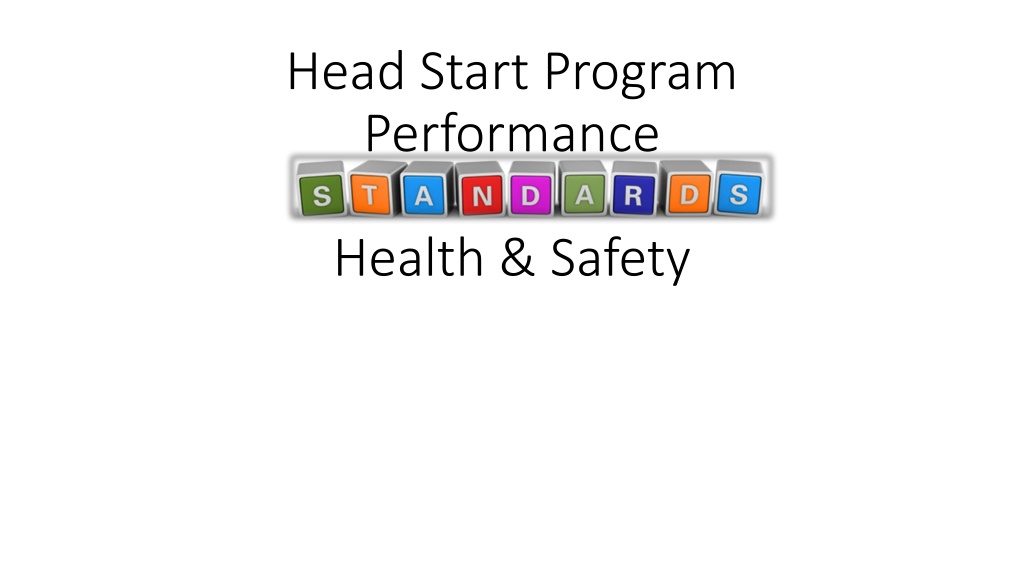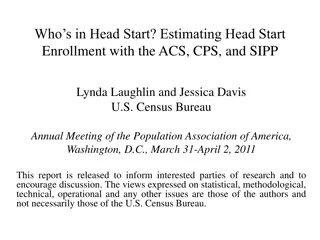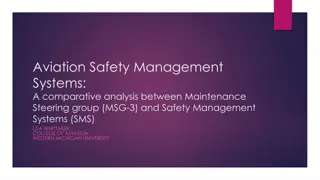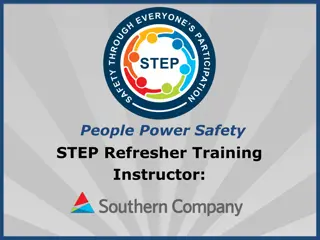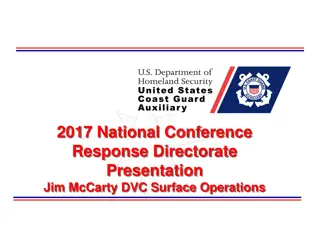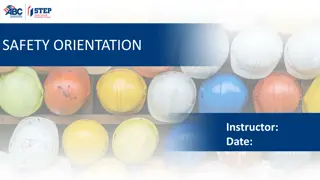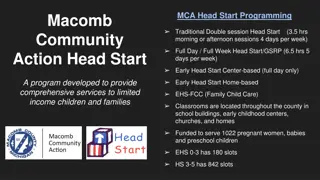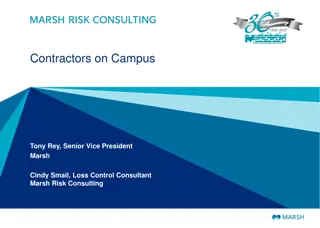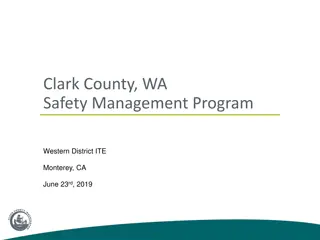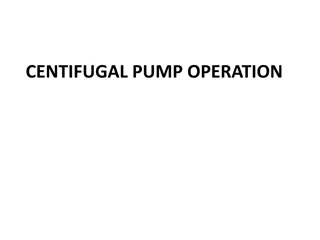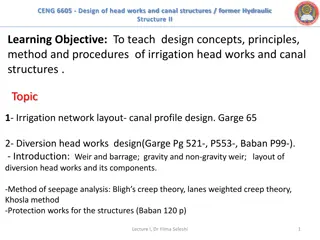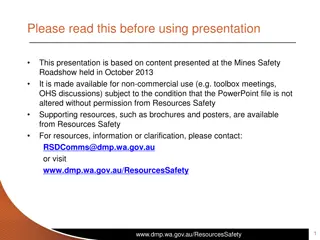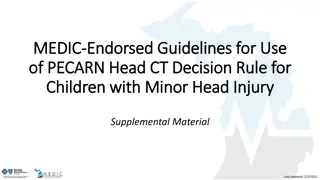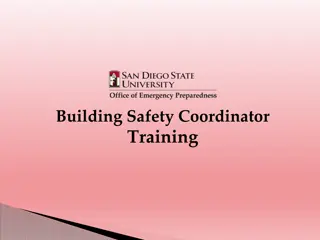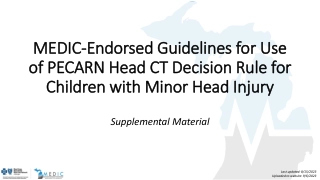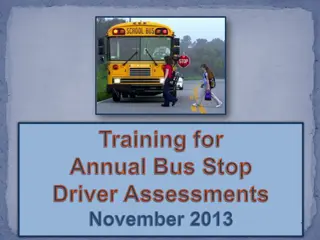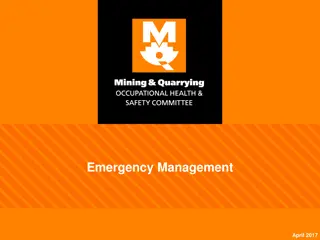Importance of Health and Safety in Head Start Program Performance
Head Start Program Performance emphasizes high-quality health, oral health, mental health, and nutrition services for children's growth and school readiness. It promotes collaboration with parents, child health status assessment, oral health practices, and child nutrition to ensure comprehensive care. The program standards reflect best practices in early childhood development, encouraging positive outcomes through data tracking and goal achievement.
Download Presentation

Please find below an Image/Link to download the presentation.
The content on the website is provided AS IS for your information and personal use only. It may not be sold, licensed, or shared on other websites without obtaining consent from the author. Download presentation by click this link. If you encounter any issues during the download, it is possible that the publisher has removed the file from their server.
E N D
Presentation Transcript
Head Start Program Performance http://theinstitute.ieee.org/img/56376-1368537296745.jpg Health & Safety
The Head Start Program Performance Standards Reflect best practices and the latest research on early childhood development and brain science. Guide grantees in achieving positive child and family outcomes Encourage the use of data to track progress and reach goals in all program areas.
1302.40 Purpose. (a) A program must provide high-quality health, oral health, mental health, and nutrition services that are developmentally, culturally, and linguistically appropriate and that will support each child s growth and school readiness. (b) A program must establish and maintain a Health Services Advisory Committee that includes Head Start parents, professionals, and other volunteers from the community.
1302.41 Collaboration and communication with parents. Communicate with parents about their child s health needs and development concerns in a timely and effective manner. Obtain advance authorization from the parent or other person with legal authority for all health and developmental procedures Share with parents the policies for health emergencies that require rapid response on the part of staff or immediate medical attention.
1302.42 Child health status and care. 30 calendar days after the child first attends the program needs to determine whether each child has ongoing sources of continuous, accessible health care 45 calendar days after the child first attends the program must either obtain or perform evidence-based vision and hearing screenings. 90 days A program must help parents continue to follow recommended schedules of well-child and oral health care.
1302.43 Oral health practices A program must promote effective oral health hygiene by ensuring all children with teeth are assisted by appropriate staff, in brushing their teeth with toothpaste containing fluoride once daily.
1302.44 Child Nutrition Ensure each child in a program receives meals and snacks that provide one third to one half of the child s daily nutritional needs; Ensure bottle-fed infants are never laid down to sleep with a bottle; Make safe drinking water available to children during the program day
http://theinstitute.ieee.org/img/56376-1368537296745.jpg 1302.44 As developmentally appropriate, opportunity is provided for the involvement of children in food- related activities. Como apropiadas al desarrollo, la oportunidad est prevista la participaci n de ni os en las actividades relacionadas con los alimentos. 1302.44 Medically-based diets or other dietary requirements are accommodated; Dietas con orden del doctor y requisitos alimentarios son acomodados; 1302.44 All toddlers and preschool children and assigned classroom staff, including volunteers, eat together family style and share the same menu to the extent possible; Todos los beb s y los ni os en edad preescolar y empleados del salon , incluidos los voluntarios, comen juntos estilo familiar y compartir el mismo men a la medida de lo posible;
http://theinstitute.ieee.org/img/56376-1368537296745.jpg 1302.44 1302.44 Food is not used as punishment or reward, and that each child is encouraged, but not forced, to eat or taste his or her food Alimentos no se utilizan como castigo o recompensa, y que cada ni o es animado, pero no forzado, para comer o probar su comida A variety of food is served which broadens each child s food experiences; Se sirve una variedad de alimentos que ampl a experiencias de alimentos de cada ni o; 1302.44 1302.44 Infants are held while being fed and are not laid down to sleep with a bottle; Los ni os son sostenidos siendo alimentado y no son acostados para dormir con una botella; Sufficient time is allowed for each child to eat Se permite tiempo suficiente para que cada ni o come
http://theinstitute.ieee.org/img/56376-1368537296745.jpg 1302.44 1302.44 -- CHOKE hazardous food that can cause child to choke shall not be served; ex. Hot dogs or sausage rounds, whole grapes, hard raw vegetables and fruits, and uncooked dried fruit, including raisins, candy, whole nuts, beans, seeds or grain kernels, pretzels, chips, peanuts, and popcorn, marshmallows, chewing gum, and spoonfuls of peanut butter, and chunks of meat. Food Items NOT Allowed:
1302.45 Child mental health and social and emotional well-being. Children s mental health, social and emotional well-being, and overall health, a program must: Provide supports for effective classroom management and positive learning environments; supportive teacher practices; and, strategies for supporting children with challenging behaviors and other social, emotional, and mental health concerns
1302.46 Family support services for health, nutrition, and mental health Programs must collaborate with parents to promote children s health and well-being by providing medical, oral, nutrition and mental health education support services that are understandable to individuals, including individuals with low health literacy
1302.47 Safety practices. A program must establish, train staff on, implement, and enforce a system of health and safety practices that ensure children are kept safe at all times.
